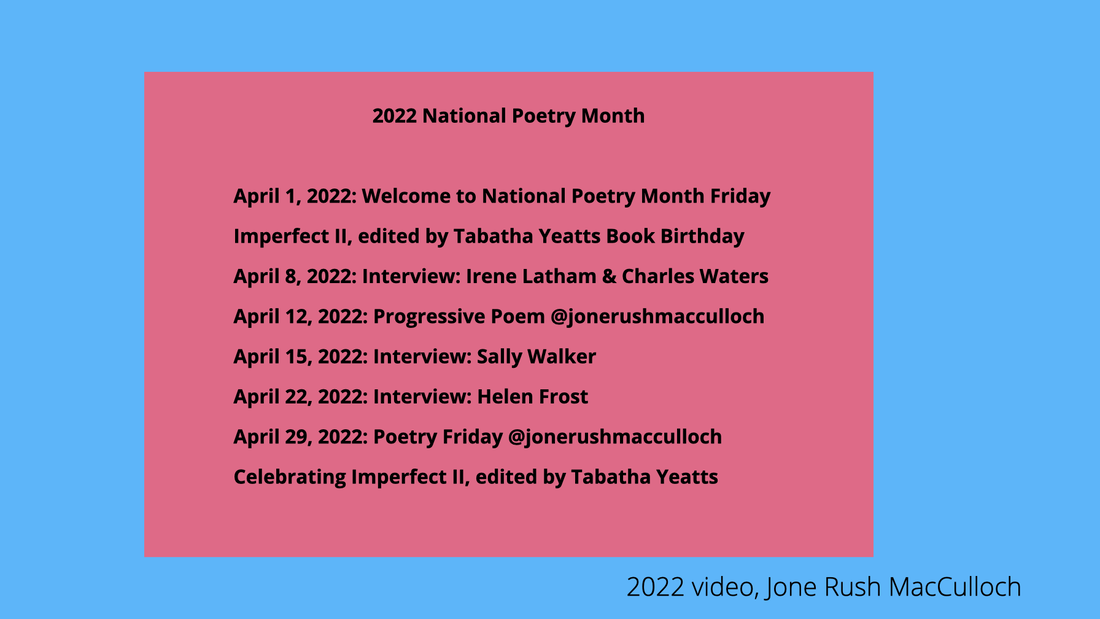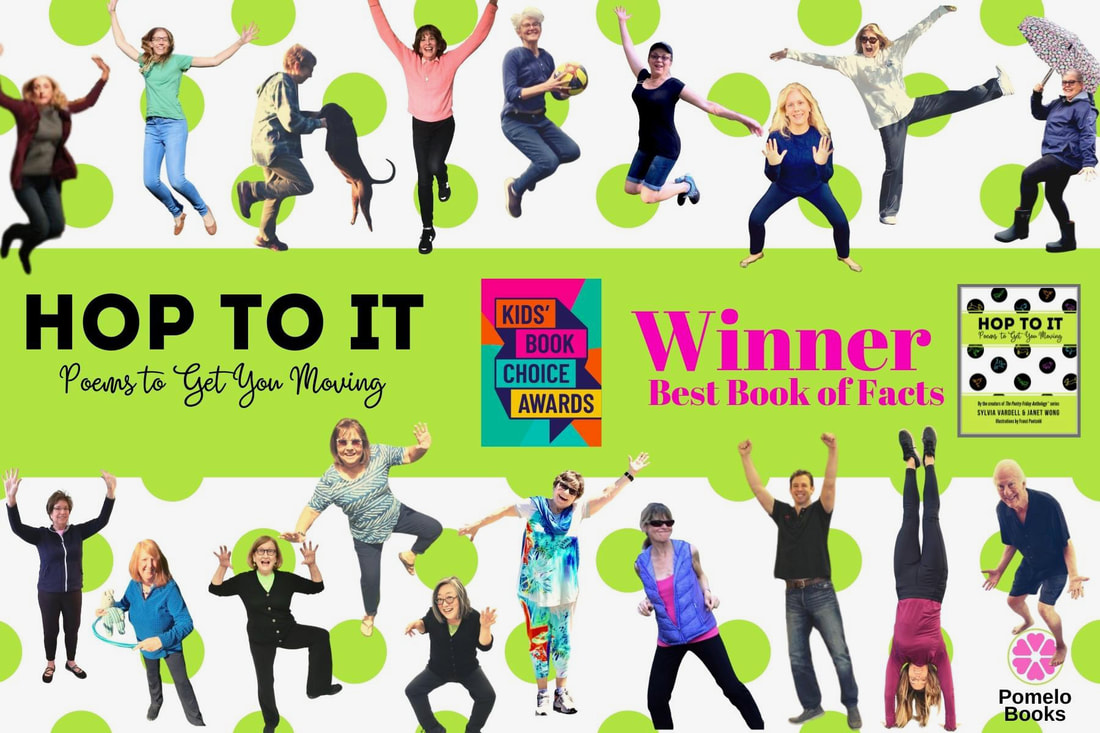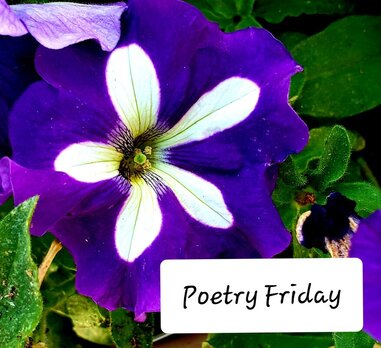 Welcome to Poetry Friday. This week Janice at Salt City Verse is doing hosting duties. She's featuring David Elliott's new book, At The Pond. I'm featuring an interview with Irene Latham and Charles Waters about African Town. If you not read it, I recommend you run and get a copy or perhaps you might win a copy here. Leave a comment and I will choose a recipient. 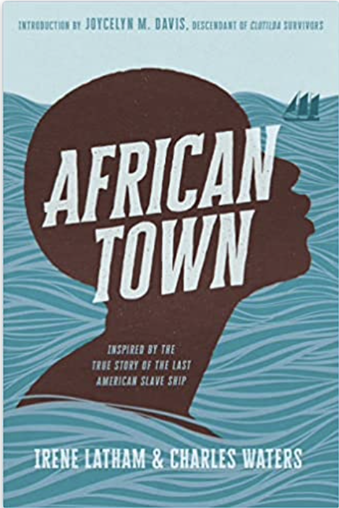 JRM: This is your third collaboration. What have you learned about working together in the past? How was this adventure different or new? IL & CW: Can I Touch Your Hair? taught us to be open and trust one another as writing partners. Dictionary for a Better World taught us to be brave and try new poetry forms. African Town—because it was our first adventure together in YA and in historical fiction—required ALL of that as well as a whole new depth of collaboration, including research, responsibility, and sensitivity for the descendants and their ancestors. Each character we gave a voice was someone’s father, brother, mother, grandparent. Such a humbling experience. JRM: You cover such a large swath of time 1859-1901, how were you able to keep all the research and poems from being too unyielding? IL & CW: We were constantly aware of two things throughout the writing process: 1) we were asking A LOT of the reader by telling the story in 14 voices and 2) we needed to keep the story moving with only the details most pertinent to our book’s message of hope and resilience. We made ourselves stick to our outline. JRM: Was there a section of the book which you wished you could have stayed longer with or one you were thankful when the section was completed? IL & CW: Well, since writing is rewriting, we wish we could have stayed longer on the whole book to make it even better. One (or more) sections we’re thankful to have completed and not work on again include the parts chronicling being in the barracoons in Africa, the Middle Passage, the time in the Alabama swamplands (where the Clotilda survivors were sold as chattel), and the years they lived as enslaved people. JRM: How did you determine who researched and wrote the poems for the fourteen characters? Was there a poem style you tried and realized it wasn’t fitting the character? Did you share any of the characters? Were there characters whose voice and story surprised you? IL & CW: Initially we divvied the voices according to where we each were in the research at the time. We each wrote black and white characters to get a first draft, and then we spent marathon phone conversations revising line by line. The Clotilda poems we wrote together from the get-go. We put a lot of thought into which poetry form for which character at the start, and we stuck with our choices. And yes, there were many surprises along the way! We learned Abilè̩ had a secret—though it took a long time to discover what that secret was! JRM: I’m curious about the process. After the research and poem drafts how did you piece and stitch the story like a quilt? IL & CW: We outlined the entire book at the outset, thinking of it in “scenes.” So we knew for each poem who was speaking, and what critical information needed to be relayed. Of course some things shifted during the writing and revision process, but we had a solid plan based on the actual historical events. JRM: What do you hope readers will take away from reading African Town? IL & CW: So many things! This is rich material. We hope young people in particular recognize that there is no way of going forward in life unless we look back, take stock of the past, and bear witness by reading, watching documentaries, and having conversations about family history. JRM: How had African Town been received by the descendents of Clotilda? IL & CW: So far, there has been gratitude from the descendants for telling this story with respect and care for their ancestors. We’re particularly grateful to Altevese Rosario, descendant of Kossola and Abilè̩, who also wrote the Teacher’s Guide for the book, as well as Joycelyn Davis, a descendant of Oluale and Maggie who wrote our introduction. RM: You have shared several interviews about African Town. I am wondering if there was an unasked question you’d like to share here and answer? Are there any characters you cut or others you wish you could have included? IL & CW: We did cut a character named Free George. He appears in the poems now, but doesn’t have his own voice. As a free black man during the Civil War, his perspective and life was really interesting and inspiring to us. Also, had we known earlier about Matilda McCrear, who was only 2 at the time of the crossing onboard Clotilda, we might have given her a voice as well. But we had already turned in the book at that point and were only able to add her in a single poem. (But at least we were able to do that!) RM: What is next for you both? IL & CW: Our picture book Be A Bridge from Carolrhoda/Lerner Publishing with illustrations from Nabila Adani comes in August of this year. Thank you, Irene and Charles, for taking the time to answer questions about taking Africatown. You can order a signed copy from Alabama Booksmith. I later asked Irene about what is available to visit in and near Africantown and Mobile, AL. She shared that there are quite a few things in the works in Africatown and Mobile to commemorate this history. The Africatown Heritage House opens possibly in May Mobile has a history museum and other attractions, like a battleship to tour, Bellingrath gardens, Fairhope (a cool history all its own) and gorgeous beaches Gulf Shores and Orange Beach very close. I just may have to make a visit.
Irene Latham
4/8/2022 05:23:58 am
Jone, thank you so much for sharing about African Town! I hope you will visit Mobile someday. They are working to raise the Clotilda and create other ways to commemorate this history. Much more to come! xo 4/8/2022 10:06:32 am
What a feat it must have been writing this story, so much research and so many characters to portray! Wonderful interview, Jone! You asked questions about the writing process and also about the importance of making an outline. It's always good to be reminded how helpful that can be. Thank you! 4/8/2022 04:56:47 pm
Thanks for the interview, Jone. I enjoyed reading more about the prep & the hard work putting this special story of those who have not been remembered all together . What a feat Irene & Charles have accomplished! I loved the book, re-read some of it because I was so touched by the love that continued in the face of the horrific things that happened. No matter, love & support stayed! It is a special book. 4/8/2022 08:46:43 pm
What an important book - and such a fabulous collaborative labor of love! Thank you! 4/9/2022 04:59:03 am
This is such a painful and necessary book. I loved learning more about the writing process. But...line revision by phone? No, thank you! Funny how different collaborative methods appeal...or don't! Thank you, Jone, Charles, and Irene! 4/9/2022 05:32:21 am
Jone, your blog post is filled with such interesting questions and responses by Irene and Charles. I am intrigues by the amount of research and details that Irene and Charles engaged in to add depth to their new book. Thank you for sharing this marvelous project in such detail. Congratulations to Irene and Charles. 4/9/2022 11:02:10 am
Thank you for shining your light on Irene and Charles, Jone. They both are absolute talents and the world is lucky to read their necessary stories. :) 4/9/2022 11:22:05 am
Jone, I love this interview--it seems to go past the questions about content to questions about process and collaboration, labor and emotion, which I really appreciate. Thanks! I'd love to win a copy.
Mary Lee
4/9/2022 02:20:35 pm
What a fascinating interview! I love hearing about their organizational progress! 4/9/2022 04:44:16 pm
What a labor of love and wonderful collaboration. I loved Dictionary for a Better World and refer to it often! Thank you for sharing it and sharing their process.
Linda Mitchell
4/10/2022 02:57:20 am
Wonderful! Thank you Jone for interviewing Irene and Charles. I have listened to African Town but not read the physical book yet. I can tell you that the audible version of the book is incredible. So, I can only imagine the beauty of the words on the page. I'm over the moon that this history is accessible to young readers in this form. It's not been a "reading year" in my neck of the woods for young people. Novels in verse have been my go-to gateway to longer works for tweens and teens. We need more...hear that Charles & Irene? More! 4/10/2022 07:34:40 am
Jone, Thank you for offering us this interview with Irene and Charles on African Town. Their process was intriguing and so very time consuming to make sure they told authentic stories about the characters and their history. And, thank you for all the work you are doing this month (NPM) to bring us these interesting interviews! I enjoy reading them! ~ Carol 4/10/2022 12:15:58 pm
I love hearing the story behind the story and now I am looking forward to reading this book. Thank you for this interview! 4/12/2022 03:26:56 pm
So interesting! Thank you Jone, Irene, and Charles for the great interview. I have not yet had an opportunity to read this book, but I look forward to it!
Laura Shovan
4/14/2022 11:09:55 am
It's so good to hear about Irene and Charles' collaborative process. I especially like "writing is rewriting." Comments are closed.
|
AuthorAll photos and poems in these blog posts are copyrighted to Jone Rush MacCulloch 2006- Present. Please do not copy, reprint or reproduce without written permission from me. Categories
All
Archives
July 2024
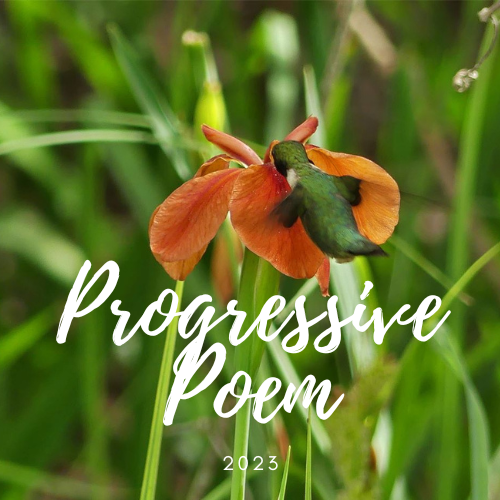
2023 Progressive Poem
April 1 Mary Lee Hahn, Another Year of Reading April 2 Heidi Mordhorst, My Juicy Little Universe April 3 Tabatha, The Opposite of Indifference April 4 Buffy Silverman April 5 Rose Cappelli, Imagine the Possibilities April 6 Donna Smith, Mainely Write April 7 Margaret Simon, Reflections on the Teche April 8 Leigh Anne, A Day in the Life April 9 Linda Mitchell, A Word Edgewise April 10 Denise Krebs, Dare to Care April 11 Emma Roller, Penguins and Poems April 12 Dave Roller, Leap Of Dave April 13 Irene Latham Live You Poem April 14 Janice Scully, Salt City Verse April 15 Jone Rush MacCulloch April 16 Linda Baie, TeacherDance April 17 Carol Varsalona, Beyond Literacy Link April 18 Marcie Atkins April 19 Carol Labuzzetta at The Apples in My Orchard April 20 Cathy Hutter, Poeturescapes April 21 Sarah Grace Tuttle, Sarah Grace Tuttle’s Blog, April 22 Marilyn Garcia April 23 Catherine, Reading to the Core April 24 Janet Fagal, hosted by Tabatha, The Opposite of Indifference April 25 Ruth, There is no Such Thing as a God-Forsaken Town April 26 Patricia J. Franz, Reverie April 27 Theresa Gaughan, Theresa’s Teaching Tidbits April 28 Karin Fisher-Golton, Still in Awe Blog April 29 Karen Eastlund, Karen’s Got a Blog April 30 Michelle Kogan Illustration, Painting, and Writing |
